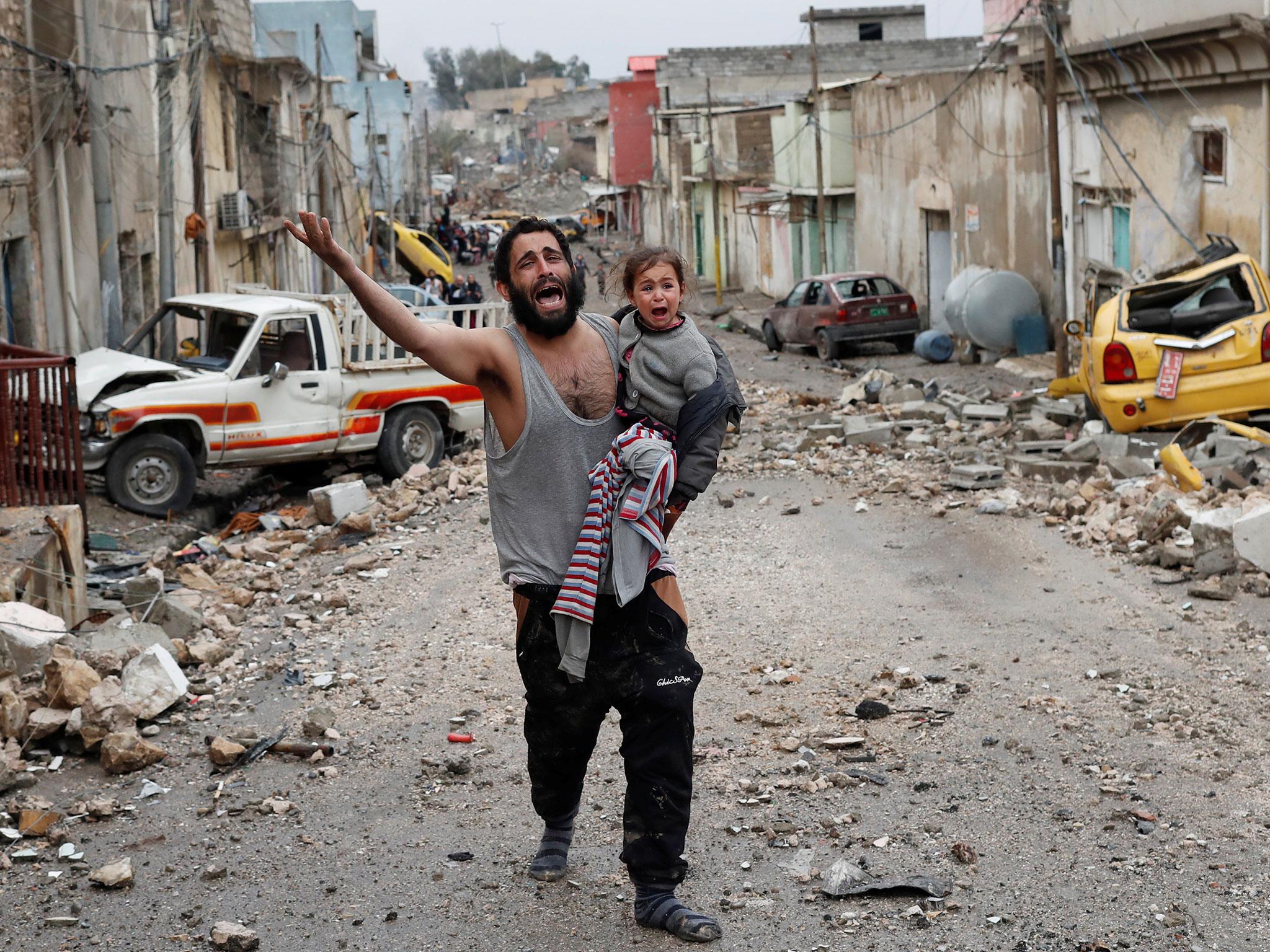Iraqi troops face heaviest clashes with Isis in Mosul as thousands continue to flee
More than 40,000 people have been displaced from the city in the last week

Iraqi troops have encountered the heaviest clashes yet with Isis fighters in western Mosul since the start of the new push more than two weeks ago.
Major General Haider al-Maturi of the Federal Police Commandos Division said that Isis fighters dispatched at least six suicide car bombs, which were all destroyed before reaching the troops. The militants, he said, are moving from house to house and deploying snipers.
The wave of heavy resistance comes as Iraqi forces launched attacks against Isis-held neighbourhoods in western Mosul from three points. The Federal Police are closing in on the city's main government complex in the Dawasa neighborhood and Iraq's special forces are attempting to push into the Shuhada and Mansour neighbourhoods.
Isis fighters have “some mortar (teams) and snipers positioned inside homes,” said Iraqi special forces Major Ali Talib, explaining that US-led coalition air strikes have helped destroy some of the Isis defences, but clashes are still ongoing.
More than 40,000 people have been displaced in the last week from Mosul. The pace of displacement has accelerated in recent days as fighting approaches the most densely populated parts of western Mosul, and aid agencies have expressed concern that camps to accommodate people fleeing the city are almost full.
The International Organisation for Migration's Mosul Displacement Tracking Matrix showed the number of people uprooted since the start of the offensive in October exceeded 206,000 on Sunday, up from 164,000 on 26 February.
That number may still rise sharply. The United Nations last month warned that more than 400,00 people, more than half the remaining population in western Mosul, could be displaced.
Also on Sunday, the Organisation for the Prohibition of Chemical Weapons said in a statement the group was “seriously concerned” about reports of chemical weapons use in Mosul.
“The OPCW has asked Iraqi authorities for more information and has offered its assistance to the Iraqi investigation,” the statement said.
The alleged attack occurred last week in eastern Mosul, an area declared fully liberated by Iraqi forces in January. The attack hit a neighbourhood along the Tigris River, which roughly divides the city in two. Hospital officials said 10 patients were admitted for exposure and would be discharged in the coming days.
The United Nations warned that the alleged use of chemical weapons, if confirmed, would be a war crime and a serious violation of international humanitarian law.
The push on Mosul's west was launched about two weeks ago after the eastern half of the city was declared “fully liberated” in January. The operation to retake Mosul officially began in October after more than two years of slowly clawing back territory from Isis fighters. Isis overran nearly a third of Iraq — including Mosul the country's second largest city — in the summer of 2014.
Associated Press
Join our commenting forum
Join thought-provoking conversations, follow other Independent readers and see their replies
Comments
Bookmark popover
Removed from bookmarks